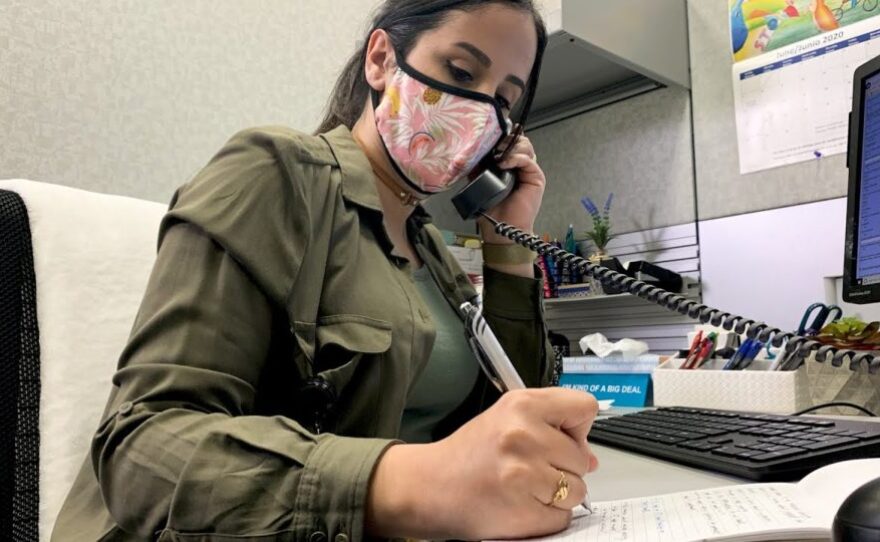For more than two weeks, San Diego County has failed to meet its goal to begin investigations of new COVID-19 cases within 24 hours.
That means the close contacts of people who test positive for the coronavirus are not being alerted quickly and are not being told to quarantine.
The county set a goal that 70% of new case investigations would begin within 24 hours — currently, just 11% of case investigations meet that goal.
Part of the reason is the county does not have enough case investigators, which is a different job from a contact tracer, according to the Centers for Disease Control and Prevention.
Case investigators are the people who call a person who has tested positive for COVID-19. They have a lengthy conversation to find out everyone that person has been in close contact with over the past two weeks. The county defines "close contact" as spending more than 15 minutes less than 6 feet away from someone.
The person who tested positive, however, is also a person who needs care and support.
"They want to know what do next, how do I get what I need, how do I pay my bills if I can't go to work," said Rebecca Fielding-Miller, an epidemiologist at UC San Diego. "The investigator makes sure that person is supported and knows what resources are available to them.
The conversations can sometimes span multiple hours, she said.
"There's a real art to it because you're catching people in a vulnerable moment, it's not a great phone call to make," she said. "So you want people who are empathetic, ideally multilingual, and can sit with them in that moment of discomfort, while also making it clear they need to quarantine and get information out of them, so it's very tricky."
The contact tracer picks up what the case investigator hands off.
The contact tracer calls all of the contacts of the infected person and tells them to quarantine at home for two weeks and monitor themselves for symptoms, said Fielding-Miller. Those conversations are shorter, but contact tracers need to make more of them because each positive case has multiple contacts.
Currently, contact tracers working for the county are keeping up with demand — they make 92% of the calls to close contacts of an infected person within 24 hours.
San Diego County officials declined interview requests for this story but said at a press conference that the county currently has 270 case investigators and 232 contact tracers.
When case investigators began struggling to keep up with calls, the county began hiring more — they have now hired 48 case investigators and 165 contact tracers. They plan to add 160 more, in total, to that.
The county is now also beginning partnerships with outside contractors and San Diego State University to outsource some of its contact tracings.
But the county missed an opportunity to better contain COVID-19 by not hiring more case investigators earlier on, in April or May, Fielding-Miller said.
"If we had had double or triple the number of contact tracers we set a goal for in April, we'd be in a really different situation right now," she said.
A study from Johns Hopkins found that in Wuhan, China, 81 contact tracers per 100,000 residents were needed to contain the virus.
"For the county of San Diego, that would mean 2,700 people," Fielding-Miller said. "I get it, it's expensive to hire more people."
Because the county ended up hiring far fewer people than 2,700, it ended up costing more because of the money that has been spent on containing the virus, she said.







